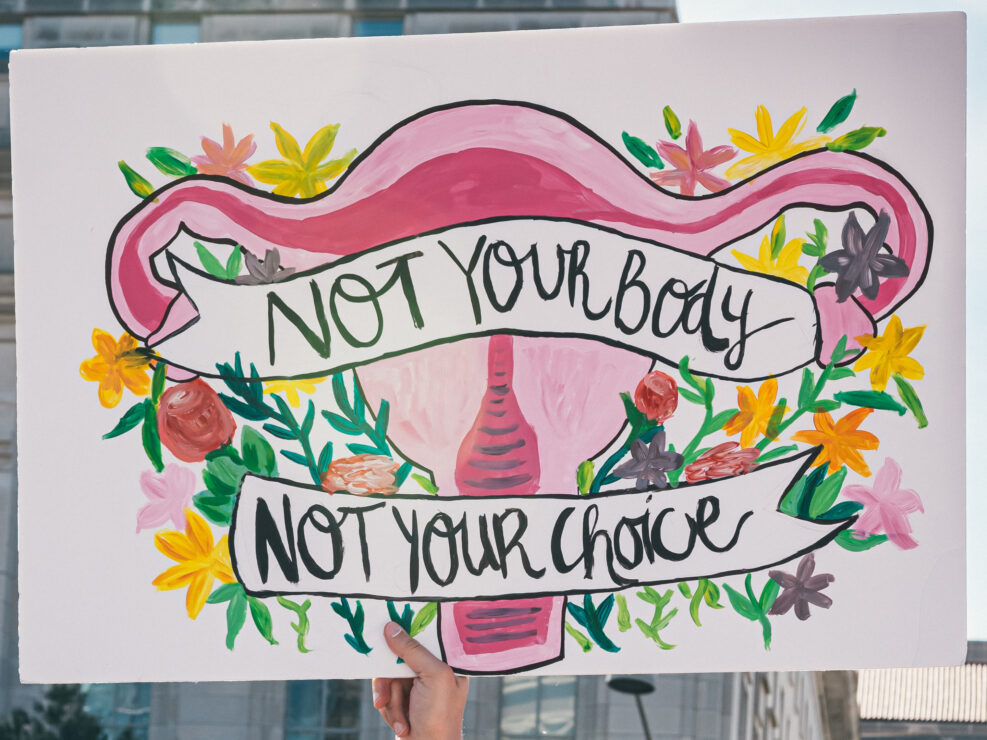In the wake of the U.S. Supreme Court leak, Canada’s own abortion policy isn’t as secure as we think

Earlier this month, a leaked draft opinion letter from the United States Supreme Court declared their intention to overrule Roe v. Wade — the landmark 1973 Supreme Court decision that ruled abortion rights were constitutionally protected.
The letter declared the Supreme Court majority’s view that it is “time to heed the Constitution and return the issue of abortion to the people’s elected representatives.”
Criminal law in the United States is shared between Federal and State governments, meaning that laws regulating abortion can be passed both at the Federal and State levels. Currently, nine states have unenforced abortion bans which predate the 1973 Roe ruling, and thirteen states have legislated abortion bans intended to take effect in the event Roe is overturned.
As such, it seems increasingly likely that in the aftermath of the final Supreme Court decision, the United States will become a patchwork of vastly different abortion policies. States run by Democratic leaders will likely maintain legal abortion with existing or similar restrictions, while states run by Republicans will likely introduce legislation to heavily restrict or ban abortion altogether — a goal they have already been working towards, as evidenced by previous attempts to pass “heartbeat bills.”
As Canadians, it’s all too easy for us to reflexively deride the political happenings of our southern neighbours, when we should be reflecting on our own policies.
Unlike the United States, our criminal law is solely the jurisdiction of the Federal government, meaning that abortion in Canada can’t be legal in one province and banned in another. Any laws restricting abortion would have to be passed nationwide.
The 1988 R v. Morgentaler ruling, often described as Canada’s Roe v. Wade case, concluded that restrictions on abortion violate section seven of our Charter rights – our right to personal freedom and security of the person. While the Morgentaler ruling struck down laws preventing abortion, it didn’t legally enshrine the right to abortion in Canadian law either.
Following the Morgentaler ruling, Brian Mulroney’s Progressive Conservative government attempted to pass a restrictive abortion policy in the form of Bill C-43, which would’ve outlawed abortions except in instances where the mother’s health was at risk. Bill C-43 passed in the House of Commons, but was defeated in the Senate — in part due to a presentation given by UVic’s own Dr. Eike Henner-Kluge, then director of Ethics and Legal Affairs for the Canadian Medical Association.
Since then, no government has made a serious attempt to revisit the issue of legislating abortion.
There are very clear advantages to having no abortion policy. By not having a policy, we ensure that our government is not interfering in the bodily autonomy of women. Many have rightly argued that by not legislating the issue we ensure that abortion is treated how it should be — purely a healthcare matter.
However, lacking any legislative policy on abortion also means we leave the door open to future attempts from lawmakers to restrict reproductive rights.
Canada’s Conservative Party is currently in the process of electing a new party leader, and the issue of abortion was raised during the May 11 debate. All candidates but one — Dr. Leslyn Lewis, a member of parliament from Ontario — described themselves as pro-choice, or otherwise stated that they would not reopen the issue of abortion.
Lewis, meanwhile, described herself as pro-life at the debate, to immediate applause from the audience.
While the prospective leaders, aside from Lewis, have stated their lack of intent to reopen the issue, the same cannot be said for the Conservative party as a whole. Just last year, a private member’s bill seeking to ban sex-selective abortions received 81 votes — just over two thirds of the Conservative caucus.
More recently, a motion was put forward in the House of Commons by Bloc Quebecois MP Christine Normandin to recognise a woman’s freedom of choice, but was blocked by several “no’s” by other MPs.
It’s clear that, while the leadership of the Conservative Party seems unwilling to reopen the issue of abortion, that sentiment is not shared by all elected members of the Party.
Prime Minister Justin Trudeau, meanwhile, has reaffirmed his belief in a woman’s freedom of choice, as well as stating that his government is looking at the legality around reproductive rights to “move forward as necessary on ensuring that not just under this government, but under any future government, the rights of women are properly protected.”
Since 1990, we’ve relied on Conservatives being unwilling to reopen the debate to ensure that abortion rights aren’t infringed upon. Not having an active threat to these rights, however, is not the same as protecting them.
By not legally enshrining the right to abortion, we place too much trust in future governments to respect reproductive rights. It’s long overdue that we ensure that reproductive rights are legally protected for all future generations of Canadians, especially as our U.S. neighbours find their own protections being overturned.







